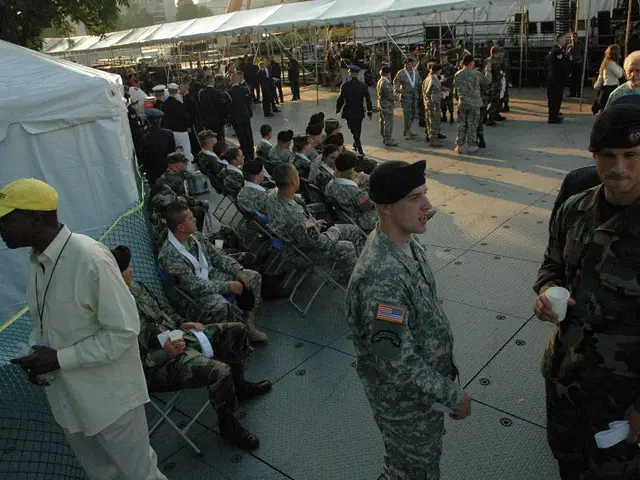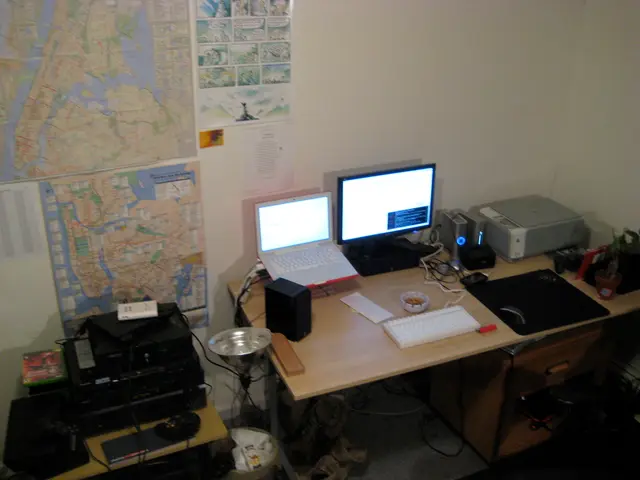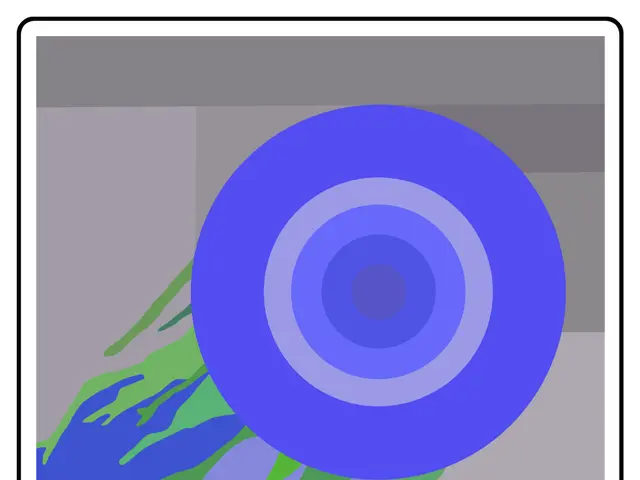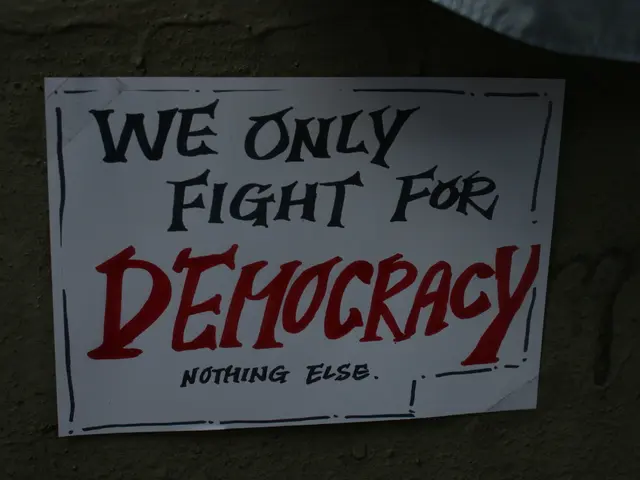U.S. Secretary of State Marco Rubio announces intention to cancel visas of Chinese students.
WASHINGTON (AP) - Secretary of State Marco Rubio announced a significant policy shift on Wednesday, stating that the U.S. will begin revoking visas of some Chinese students, particularly those studying in critical fields or with ties to the Chinese Communist Party.
China, the second-largest origin for international students in the United States, contributed approximately a quarter of all foreign students during the 2023-2024 academic year, with over 270,000 students from China pursuing higher education in the United States.
In a statement, Rubio emphasized that this decision follows President Trump's leadership and will be executed in cooperation with the Department of Homeland Security. The aim is to aggressively revoke the visas of Chinese students with specific connections or pursuing studies in critical fields.
The Chinese Embassy in Washington did not immediately respond to a request for comment.
As tension escalates over the ties between U.S. higher education and China, House Republicans have been at the forefront of pressing for increased scrutiny. This month, they urged Duke University to cut ties with a Chinese university, citing concerns about federally funded research. Last year, House Republicans released a report warning of the potential for hundreds of millions of dollars in defense funding to be diverted to research partnerships linked to the Chinese government.
The Department of Homeland Security raised similar concerns in a letter to Harvard University last week, barring international students from the institution due to allegations of coordination with the Chinese Communist Party. The decision, currently on hold due to a federal judge's order, has stirred controversy.
Yesterday's announcement by Rubio builds on continued efforts to clamp down on academic ties between the United States and China, which have been perceived as a national security threat by some Republicans. In April of last year, Trump ordered the Education Department to ramp up enforcement of rules requiring colleges to disclose information about funding from foreign sources.
The policy introduces added uncertainty for America's international students, many of whom have faced increasing scrutiny under the current administration. Earlier this year, U.S. Immigration and Customs Enforcement arrested and attempted to deport students involved in campus protests against the Israel-Hamas war. The Trump administration also terminated the legal status of thousands of international students before reversing the decision and expanding the grounds on which students can face loss of permission to study in the U.S.
Vladyslav Plyaka, a University of Wisconsin student, faces uncertainty as visa appointments have been suspended due to the new guidelines for increased social media vetting. He is weighing the possibility of finishing his education in the U.S. and then returning to Ukraine.
Meanwhile, the Trump administration is planning to further enhance the scrutiny of all future visa applications from China and Hong Kong by revising visa criteria. In a separate announcement, Rubio stated that the government will also review the social media activity of visa applicants to ensure their alignment with U.S. values and security interests. This additional scrutiny, though vague in its specifics, is expected to deter students from coming to the U.S., according to Jonathan Friedman of PEN America.
The move to cut off international enrollment at Harvard University stems from a dispute over the provision of information about foreign students that might implicate them in violence or protests that could lead to their deportation. Harvard contends that it has complied with the records request, but the Department of Homeland Security claims that the response fell short.
On Wednesday, Trump called for a cap on foreign student enrollment at Harvard, aiming to limit the percentage to about 15%. "I want to make sure the foreign students are people that can love our country," Trump said. The Trump administration has withheld over $2.6 billion in federal grants for Harvard as it presses demands for changes to policies and governance at the Ivy League school, which the president has described as a hotbed of liberalism and antisemitism. Harvard has fought back with a lawsuit against the administration.
(Associated Press writers Seung Min Kim in Washington and Jocelyn Gecker in San Francisco contributed to this report.)
(The Associated Press' education coverage receives financial support from multiple private foundations. AP is solely responsible for all content. Find AP's standards for working with philanthropies, a list of supporters, and funded coverage areas at AP.org.)
Copyright 2025 The Associated Press. All rights reserved.
- Education-and-self-development: The policy shift announced by Secretary of State Marco Rubio targets Chinese students studying in critical fields, potentially affecting their personal-growth and future career-development.
- Personal-growth: Vladyslav Plyaka, a University of Wisconsin student, faces uncertainties about his education due to the revised visa guidelines.
- War-and-conflicts: The Israel-Hamas war stirred controversy, leading to the arrest and attempted deportation of some international students involved in campus protests.
- Career-development: House Republicans have been advocating for increased scrutiny of federally funded research partnerships, raising concerns about potential diversions of defense funding.
- Policy-and-legislation: The Department of Homeland Security recently barred international students from Harvard University due to allegations of coordination with the Chinese Communist Party.
- Politics: Some Republicans perceive academic ties between the United States and China as a national security threat, leading to continued efforts to clamp down on these ties.
- General-news: Approximately a quarter of all foreign students during the 2023-2024 academic year were Chinese students, contributing over 270,000 students to American higher education.
- Crime-and-justice: The Trump administration has withheld over $2.6 billion in federal grants for Harvard as it presses demands for changes to policies and governance at the Ivy League school.
- Learning: Duke University was urged by House Republicans to cut ties with a Chinese university, citing concerns about federally funded research.
- Sports: The policy shift does not directly affect sports, but the increased scrutiny and uncertainty for international students could indirectly impact collegiate sports teams, such as basketball, football, baseball, hockey, tennis, and golf.
- Football: In a separate announcement, Rubio stated that the government will also review the social media activity of visa applicants, which could impact youth joining the NFL or NCAA football.
- Basketball: Trump called for a cap on foreign student enrollment at Harvard, aiming to limit the percentage to about 15%, which may affect NBA and NCAA basketball players.
- Nhl: The decision to revoke visas of Chinese students has sparked controversy and disagreements, similar to the pressure faced by the NHL’s Boston Bruins in the 1980s, when they were accused of collaborating with the Chinese military.
- Wnba: WNBA players may also be affected by the visa revocation policy, as they often come from international backgrounds.
- Mlb: Additional visa criteria for China and Hong Kong could deter students from pursuing higher education in the U.S., including those aspiring to join Major League Baseball in the future.
- Grand-prix: The increased scrutiny of all future visa applications will extend beyond academia to other areas, including auto-racing, mixed-martial-arts, and horse-racing, as well as other professional sports. Additionally, the policy shift could impact weather-forecasting and sports-betting industries that rely on international expertise.








